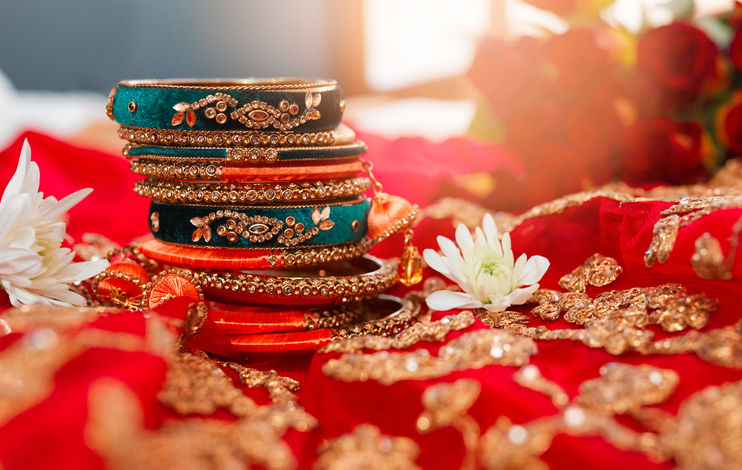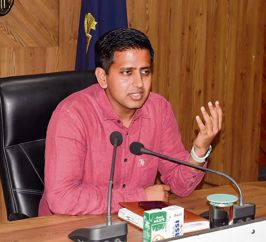
Photo for representational purpose only. iStock
Satya Prakash
New Delhi, May 1
Emphasising that Hindu Marriage is a sacred institution which shouldn’t be trivialized as a mere social event for “song and dance” and “wining and dining”, the Supreme Court has said that a Hindu marriage was not valid unless performed with appropriate rites and ceremonies, such as ‘saptapadi’.
“Unless the parties have undergone such ceremony, there would be no Hindu marriage according to Section 7 of the Act and a mere issuance of a certificate by an entity in the absence of the requisite ceremonies having been performed, would neither confirm any marital status to the parties nor establish a marriage under Hindu law,” a Bench of Justice BV Nagarathna and Justice Augustine George Masih said.
The court
“A certificate of marriage is a proof of validity of Hindu marriage only when such a marriage has taken place and not in a case where there is no marriage ceremony performed at all,” it added.
The Bench declared a purported ‘marriage’ solemnised between a man and a woman from Bihar on July 7, invalid despite there being a marriage certificate on the ground that the necessary rites and ceremonies for a ‘Hindu marriage’ in terms of the provisions of Section 7 of the Act were not performed. It also declared the marriage certificate as “null and void”.
After obtaining a marriage certificate, they had planned to get married as per Hindu rites and customs on October 25, 2022. However, before the actual marriage differences emerged between them and they filed matrimonial cases against each other. The ‘wife’ had moved the top court seeking transfer of cases from Muzaffarpur to Ranchi.
In its April 19 order, the top court quashed all the cases.
The top court deprecated the practice of young men and women seeking to acquire the status of being a husband and a wife to each other and therefore purportedly being married, often for visa purposes, saying in the absence of a valid marriage ceremony under the provisions of the Hindu Marriage Act, 1955 marriage registration certificate would not be valid.
“We note that parents of young couples agree to register a marriage in order to apply for a Visa for emigration to foreign countries where either of the parties may be working “in order to save time” and pending formalising a marriage ceremony. Such practices have to be deprecated,” it said.
“What would be the consequence, if no such marriage is solemnised at all at a future date? What would be the status of the parties then? Are they husband and wife in law and do they acquire such status in society?’ the Bench wondered.
“We urge young men and women to think deeply about the institution of marriage even before they enter upon it and as to how sacred the said institution is, in Indian society. A marriage is not an event for ‘song and dance’ and ‘wining and dining’ or an occasion to demand and exchange dowry and gifts by undue pressure leading to possible initiation of criminal proceedings thereafter.
Noting that “a Hindu marriage is a samskara and a sacrament which has to be accorded its status as an institution of great value in Indian society,” it said, “Children born out of a valid Hindu marriage are legitimate and therefore they have full rights in law.”
In the context of ‘saptapadi’ in a Hindu marriage, it said, “according to Rig Veda, after completing the seventh step (saptapadi) the bridegroom says to his bride, “With seven steps we have become friends (sakha). May I attain friendship with thee; may I not be separated from thy friendship”.
The Bench said, “A wife is considered to be half of oneself (ardhangini) but to be accepted with an identity of her own and to be a co-equal partner in the marriage. There is nothing like a “better-half” in a marriage but the spouses are equal halves in a marriage. In Hindu Law, as already noted, marriage is a sacrament or a samskara. It is the foundation for a new family.”
Join Whatsapp Channel of The Tribune for latest updates.




























